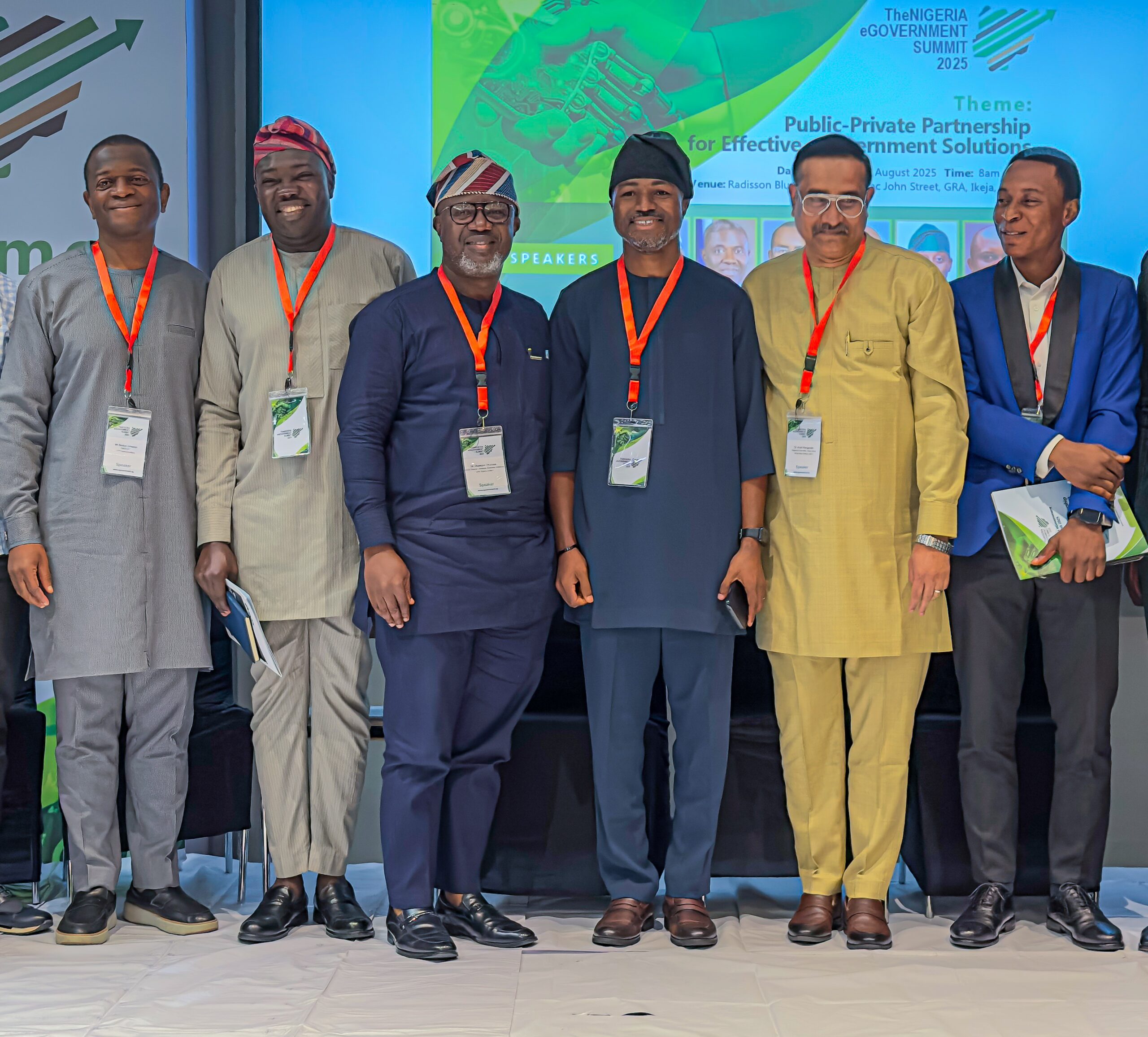
L-R: Mr Biodun Omoniyi, GCEO, VDT Communications; Mr Oluwatimilehin Adelowo, Head, IT Security & Governance, T2mobile; Mr Olusegun Okuneye, Deputy Director, Strategic Business Initiatives, ipNX; Mr Tobi Durojaiye, Country Director, Unconnected.org; Dr. Krish Ranganath, Regional Executive, West Africa, Africa Data Centres (ADC) and Mr Oluwasoji Agboola, Manager, Passive Infra-Power, GLO1 Submarine Cable Systems at the Nigeria eGovernment Summit which held at Radisson Blu Ikeja on Thursday 28th, 2025
Nigeria’s leading information and communications technology company, ipNX, has called for greater investment in digital infrastructure as a critical enabler of effective e-governance services.
This call was made by Mr. Segun Okuneye, Deputy Director, Strategic Business Initiatives at ipNX, during the recently concluded Nigeria eGovernment Summit, held on Thursday, August 28, 2025, at the Radisson Blu Hotel, Ikeja, Lagos.
The high-level summit, themed “Public-Private Partnership for Effective eGovernment Service Delivery,” brought together government leaders, regulators, technology experts, and private sector stakeholders. Attendees included the Executive Governor of Lagos State, Mr. Babajide Sanwo-Olu, represented by the Honourable Commissioner for Innovation, Science and Technology, Mr. Olatunbosun Alake; and the Honourable Commissioner for Science and Technology, Cross River State, Professor Justin Beshel, among several other dignitaries.
The 2025 edition featured four panel sessions, four keynote addresses, and multiple paper presentations, all focused on addressing the challenges of digital governance, the role of private sector collaboration, and how Nigeria’s digital potential can be fully realized.
Mr. Okuneye, who chaired the panel session on “Digital Infrastructure, Energy and Inclusive Access,” emphasized that sustainable e-governance cannot thrive on weak foundations. He noted that prioritizing investments in internet infrastructure — particularly in underserved and rural areas — is crucial for inclusive governance.
“To deliver efficient and citizen-centric e-government services, Nigeria must first strengthen its digital backbone. Without robust, secure, and inclusive digital infrastructure, the promise of e-governance will remain out of reach for millions of Nigerians,” said Okuneye.
In his remarks, Governor Sanwo-Olu, represented by Mr. Alake, highlighted Lagos State’s commitment to human capital and infrastructure investments as drivers of inclusive growth. He stressed that “Public-Private Partnerships (PPPs) are not optional but essential, as the private sector accounts for more than 80% of Lagos’ GDP.”
He cited the Lagos Metro-Fibre project — a PPP initiative that has extended fibre-optic connectivity to areas such as Alimosho and Ikorodu — as a practical example of how collaboration spurs innovation and creates digital hubs. He also revealed that Lagos State has fully digitized 14 agencies, covering processes in budgeting, finance, HR, government identity, and citizen services, with a long-term goal of digitizing all 200 ministries, departments, and agencies (MDAs).
Now in its seventh year, the Nigeria eGovernment Summit continues to provide a trusted platform for fostering dialogue between public and private sector players. Engr. Lanre Ajayi, Convener of the Summit and Executive Chairman, Digiserve Network Services, noted that the forum has consistently produced actionable communiqués and fostered collaboration across the technology ecosystem.
“The future of e-governance in Nigeria depends on sustained collaboration. This summit ensures that stakeholders come together to address shared challenges and chart the way forward,” Ajayi said.
As a pioneer in Nigeria’s ICT sector, ipNX reaffirmed its commitment to driving innovation, fostering partnerships, and advocating for policy support that will accelerate telecom sector growth. With increased investment and stronger collaboration between operators and policymakers, Nigeria can achieve greater broadband penetration, improved service delivery, and inclusive digital transformation.



